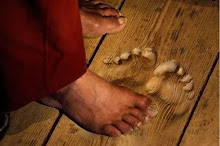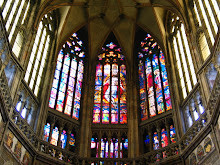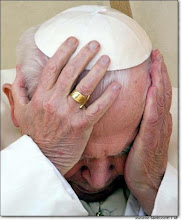"Maybe the greatest threat to the church is not heresy, not dissent, not secularism, not even moral relativism, but this sanitized, feel-good, boutique, therapeutic spirituality that makes no demands, calls for no sacrifice, asks for no conversion, entails no battle against sin, but only soothes and affirms." - a 2007 lecture on preaching.
---
"This is the time we priests need to be renewing our pledge to celibacy, not questioning it. The problems in the church today are not caused by the teachings of Jesus and of his church, but by lack of fidelity to them." - responding to a 2003 public letter from some Archdiocese of Milwaukee priests, saying celibacy should be optional.
---
"It bothers me if any politician, Catholic or not, is for abortion. Because in my mind, we're talking about a civil right, we're not talking about a matter of Catholic Church discipline. We can't allow the noble pro-life cause to be reduced to a denominational issue." - a 2004 interview with the Milwaukee Journal Sentinel.
23 February 2009
17 February 2009
So far - nothing!
Francis used to say, "Let us begin, brothers, to serve the Lord God, for up to now we have made little or no progress" (1 Celano, #193).
Don't honor - Imitate!
There is a certain dynamism in all the saints that prompts them to find ever more selfless ways of responding to God's grace. Honoring the saints will make no sense unless we are thus drawn to live as generously as they did. Their holiness can never substitute for our own.
-Anon.
-Anon.
I think - I can!
I have always wanted to become a saint. Unfortunately when I have compared myself with the saints, I have always found that there is the same difference between the saints and me as there is between a mountain whose summit is lost in the clouds and a humble grain of sand trodden underfoot by passers-by. Instead of being discouraged, I told myself: God would not make me wish for something impossible and so, in spite of my littleness, I can aim at being a saint. It is impossible for me to grow bigger, so I put up with myself as I am, with all my countless faults. But I will look for some means of going to heaven by a little way which is very short and very straight, a little way that is quite new.
Therese of Lisieux
Therese of Lisieux
16 February 2009
Three strikes? Keep Swinging!
February 15, 2009
6th Sunday in Ordinary Time
Lev 13:1-2, 44-46; 1 Cor 10:31-11:1; Mk 1:40-45
Fr. Stephen Verbest, OCSO - New Melleray Abbey
Pimples, boils, wrinkles, lumps, blotches, rashes, blackheads, dandruff, crusty scabs, open sores and ugly scars. When looking good is everything skin afflictions are terribly humiliating. When the skin affliction is leprosy it is not only humiliating but ostracizing. Fear of contagion frightened many societies into expelling lepers from their midst. Similarly, our culture doesn't like to see pimples, boils, wrinkles, lumps, blotches, rashes, blackheads, dandruff, crusty scabs, open sores and ugly scars. But looking good isn't everything.
The man approaching Jesus was full of leprosy, it was all over him, he was covered with it. People turned away from the sight of his putrefying ulcers. He had to cry out a warning in his scratchy voice, "Unclean, unclean." He was ugly, horribly repugnant. That was "strike one" against him. Jesus saw this man who looked like walking death coming toward him and Jesus waited for him because he knew that looking good isn't everything.
The leper's heart was no less disfigured, scarred and falling apart than his face, neck and arms. No hands had held his hands for years, no lips had kissed his own. The only greetings that came his way were jeers, and looks of ice and stone. He was an outcast, debarred from social life, forced to withdraw from his family, from his trade, from everyone he had known and loved; he was, oh, so lonely. If he once had children, now he could only watch them grow from a distance, never able to hug them, never touching them. His heart was in more pain than his skin. He was socially, totally unacceptable. That was "strike two" against him. Jesus saw this man in torn clothes with disheveled hair who had a wild, frighten, hungry look coming toward him and Jesus waited for him because looking good isn't everything.
The leper's soul was no less stricken and damaged than the emotions of his heart and the skin of his body. In those days leprosy was thought to be a punishment for sinfulness. It was as if his sins had broken to the surface and were devouring his flesh. He was expelled from the synagogue and the Temple. He received no blessings, no prayers, no greetings of peace. He felt abandoned by God. His spiritual uncleanness was more contagious than his physical disease. Anyone who touched a leper was immediately unclean, cut off from the praying community. The leper was considered a very bad sinner. That was "strike three" against him. Physically, emotionally, and spiritually the leper was alone. He had no one to comfort him, not even God. Jesus saw this man who was forsaken, separated from God coming toward him, and Jesus saw himself hanging on the cross like one stricken and smitten by God, afflicted and bruised, with no beauty or loveliness to be desired, despised and rejected, a man of sorrows from whom all hide their faces, someone cut off from the land of the living. But, looking good isn't everything. When we see Christ hanging on the cross looking good means nothing at all.
As the leper drew closer Jesus was moved with compassion. Jesus did not flee or pick up a stick or stones to drive the man away as others would have done. Jesus let the leper come very close. The poor man fell down at Jesus' feet and said in a trembling, raspy voice, "Lord if you will, you can make me clean." Jesus stretched forth his hand, gently stroked the leper's cheek and swept all his sores away. He looked into his eyes with love and said, "Of course I want to, be clean." All at once the leper knew he was healed by Jesus, loved by God and made whole again. The goodness and love of Jesus poured into his heart and soul. Looking good isn't everything; being good—a loving person, that's everything.
From the moment Jesus touched this leper, the values of a culture based on appearances were reversed. Never again would touching a leper make a Christian disciple unclean. Just the opposite. Reaching out to comfort the afflicted, to love the unlovely, to embrace the ugly, makes us more like Christ, more spiritually beautiful. St. Francis of Assisi overcame his repugnance by kneeling to kiss the hands of a leper after first fleeing from him. Blessed Damian de Veuster of Molokai not only ministered to lepers but willingly became one. His handsome face grew blistered and swollen, dreadfully disfigured. Mother Teresa found Christ in the ravaged faces of dying wretches she picked up from the gutters of Calcutta. She caressed them, and they thanked her.
One day, at New Melleray Abbey, I sat down next to Fr. Joseph in our infirmary. He had a stroke and could not speak. I said, "Fr. Joseph, it must be very hard and lonely to sit here all day long and not be able to say what you want to say." He turned his eyes to me, his lips began to quiver, and he started to cry a little. I just held his hand with both of mine and loved him. It is a beautiful and life giving practice to make frequent, even daily visits to Christ present in our Blessed Sacrament Chapels. But also to visit Christ present in the hearts of our brothers and sisters who are in need or difficulty, especially the elderly and the sick. They might not look good, that's nothing. Loving them, that's everything. Will you stretch out your hand to touch them, will you show your love to them as Christ did to the leper? Will you do it today?
6th Sunday in Ordinary Time
Lev 13:1-2, 44-46; 1 Cor 10:31-11:1; Mk 1:40-45
Fr. Stephen Verbest, OCSO - New Melleray Abbey
Pimples, boils, wrinkles, lumps, blotches, rashes, blackheads, dandruff, crusty scabs, open sores and ugly scars. When looking good is everything skin afflictions are terribly humiliating. When the skin affliction is leprosy it is not only humiliating but ostracizing. Fear of contagion frightened many societies into expelling lepers from their midst. Similarly, our culture doesn't like to see pimples, boils, wrinkles, lumps, blotches, rashes, blackheads, dandruff, crusty scabs, open sores and ugly scars. But looking good isn't everything.
The man approaching Jesus was full of leprosy, it was all over him, he was covered with it. People turned away from the sight of his putrefying ulcers. He had to cry out a warning in his scratchy voice, "Unclean, unclean." He was ugly, horribly repugnant. That was "strike one" against him. Jesus saw this man who looked like walking death coming toward him and Jesus waited for him because he knew that looking good isn't everything.
The leper's heart was no less disfigured, scarred and falling apart than his face, neck and arms. No hands had held his hands for years, no lips had kissed his own. The only greetings that came his way were jeers, and looks of ice and stone. He was an outcast, debarred from social life, forced to withdraw from his family, from his trade, from everyone he had known and loved; he was, oh, so lonely. If he once had children, now he could only watch them grow from a distance, never able to hug them, never touching them. His heart was in more pain than his skin. He was socially, totally unacceptable. That was "strike two" against him. Jesus saw this man in torn clothes with disheveled hair who had a wild, frighten, hungry look coming toward him and Jesus waited for him because looking good isn't everything.
The leper's soul was no less stricken and damaged than the emotions of his heart and the skin of his body. In those days leprosy was thought to be a punishment for sinfulness. It was as if his sins had broken to the surface and were devouring his flesh. He was expelled from the synagogue and the Temple. He received no blessings, no prayers, no greetings of peace. He felt abandoned by God. His spiritual uncleanness was more contagious than his physical disease. Anyone who touched a leper was immediately unclean, cut off from the praying community. The leper was considered a very bad sinner. That was "strike three" against him. Physically, emotionally, and spiritually the leper was alone. He had no one to comfort him, not even God. Jesus saw this man who was forsaken, separated from God coming toward him, and Jesus saw himself hanging on the cross like one stricken and smitten by God, afflicted and bruised, with no beauty or loveliness to be desired, despised and rejected, a man of sorrows from whom all hide their faces, someone cut off from the land of the living. But, looking good isn't everything. When we see Christ hanging on the cross looking good means nothing at all.
As the leper drew closer Jesus was moved with compassion. Jesus did not flee or pick up a stick or stones to drive the man away as others would have done. Jesus let the leper come very close. The poor man fell down at Jesus' feet and said in a trembling, raspy voice, "Lord if you will, you can make me clean." Jesus stretched forth his hand, gently stroked the leper's cheek and swept all his sores away. He looked into his eyes with love and said, "Of course I want to, be clean." All at once the leper knew he was healed by Jesus, loved by God and made whole again. The goodness and love of Jesus poured into his heart and soul. Looking good isn't everything; being good—a loving person, that's everything.
From the moment Jesus touched this leper, the values of a culture based on appearances were reversed. Never again would touching a leper make a Christian disciple unclean. Just the opposite. Reaching out to comfort the afflicted, to love the unlovely, to embrace the ugly, makes us more like Christ, more spiritually beautiful. St. Francis of Assisi overcame his repugnance by kneeling to kiss the hands of a leper after first fleeing from him. Blessed Damian de Veuster of Molokai not only ministered to lepers but willingly became one. His handsome face grew blistered and swollen, dreadfully disfigured. Mother Teresa found Christ in the ravaged faces of dying wretches she picked up from the gutters of Calcutta. She caressed them, and they thanked her.
One day, at New Melleray Abbey, I sat down next to Fr. Joseph in our infirmary. He had a stroke and could not speak. I said, "Fr. Joseph, it must be very hard and lonely to sit here all day long and not be able to say what you want to say." He turned his eyes to me, his lips began to quiver, and he started to cry a little. I just held his hand with both of mine and loved him. It is a beautiful and life giving practice to make frequent, even daily visits to Christ present in our Blessed Sacrament Chapels. But also to visit Christ present in the hearts of our brothers and sisters who are in need or difficulty, especially the elderly and the sick. They might not look good, that's nothing. Loving them, that's everything. Will you stretch out your hand to touch them, will you show your love to them as Christ did to the leper? Will you do it today?
Do we stay or do we go?
... A monastic community is a community of sinners striving for holiness.
Unfortunately many newcomers to monastic life expect instant holiness on the part of the brethren without having to go through the messy but necessary process of conversion. In fact, such conversion is the object of one of our vows, the vow of conversion of life. But they are soon brought up short with reality and so enter the first crisis of monastic life.
-Fr. Stephen Verbest
Unfortunately many newcomers to monastic life expect instant holiness on the part of the brethren without having to go through the messy but necessary process of conversion. In fact, such conversion is the object of one of our vows, the vow of conversion of life. But they are soon brought up short with reality and so enter the first crisis of monastic life.
-Fr. Stephen Verbest
And still we call them "Saint"
Spiritual rebirth does not necessarily include peace of mind - [peace in the faculties] - it does not necessarily include inner calm, emotional harmony, easy relationships with others and a well-balanced personality. All of these human possibilities may very well characterize a person reborn from above, but none of them makes a truly spiritual person.
There are many holy people who are restless, anxious, hard to get along with, and quite unpredictable in their behavior. Often their personalities seem to be at odds with their spiritual call, and often they suffer immensely because they are unable to let their call to live in the Spirit make them psychologically attractive people.
Sometimes they seem distant or aloof, uninterested in what we consider real spiritual issues, impatient with our questions and quite asocial. We can see this in the apostles, as well as in many of the men and women whom the church calls saints.
-Henri Nouwen
There are many holy people who are restless, anxious, hard to get along with, and quite unpredictable in their behavior. Often their personalities seem to be at odds with their spiritual call, and often they suffer immensely because they are unable to let their call to live in the Spirit make them psychologically attractive people.
Sometimes they seem distant or aloof, uninterested in what we consider real spiritual issues, impatient with our questions and quite asocial. We can see this in the apostles, as well as in many of the men and women whom the church calls saints.
-Henri Nouwen
For its own sake...
Do not depend on the hope of results.
When you are doing the sort of work you have taken on, you may have to face the fact that your work will be apparently worthless and even achieve no worth at all, if not perhaps, results opposite to what you expect.
As you get used to this idea, you will start more and more to concentrate not on the results, but the value, the rightness, the truth of the work itself.
Tho. Merton
When you are doing the sort of work you have taken on, you may have to face the fact that your work will be apparently worthless and even achieve no worth at all, if not perhaps, results opposite to what you expect.
As you get used to this idea, you will start more and more to concentrate not on the results, but the value, the rightness, the truth of the work itself.
Tho. Merton
08 February 2009
Ora Pro Nobis

I kneel before your Miraculous Image Oh Most Holy Mother of God - Our Lady of Czestochowa... Mother of the Dark and Saddened face.
Enfold me Oh Mother of all Graces in your most loving arms as you enfold your beloved Son. Let me, sinner though I am, experience your Motherly love and protection.
With all humility of heart, I seek your powerful intercession with God and your most beloved Son, Jesus Christ. With your loving eyes - look kindly upon the petitions I place before you at this time...
I come before you a sinner - undeserving of your slightest glance.
I come before you knowing full well how often I have failed to listen to the voice of your beloved Son.
I come before you unworthy of your love and yet full of confidence:
Confident that your love can change me.
Confident that your intercession can save me.
Confident that your motherly love will be open to me.
Confident that your prayers can gain for me the ability to accept God's will.
Obtain for me Oh Most Holy Mother of Czestochowa those blessings that will assure me eternal salvation.
Mother Most Holy- Queen of Poland- present my petitions before the throne of God and of your Most beloved Son, Jesus Christ.
I promise to always spread devotion to your Miraculous Image - Oh Most Holy Queen of Poland and Lady of Czestochowa. Under your protection I place my life and all my needs.
OUR LADY OF CZESTOCHOWA, PRAY FOR US
07 February 2009
Try all you want, it's not about YOU trying....
Our deepest self is accessible to us only through union with God. No amount of inner work on our part does it. We can only dispose ourselves by becoming soft wax, to use Teresa's (of Avila) image, ready for the divine imprint.
What a remarkable insight into the relationship between psyche and spirit. The deepest part of us - our inner depth - is accessible only through a faith-relationship with God. It is God who leads us into the deeper reaches of the human.
Mysticism, one's faith-relationship with God, is integral to full human development. Unitive experiences are crucial to human life because they help shape us as loving persons. The fruit of union with God is always a deeper commitment to Christ and to Christ's gospel of love. Personal transformation is integral to societal transformation because the absence of such genuine love erodes community life, destroys marriages, weakens friendship and leads to loss of integrity in political life.
Distractions in Prayer: Blessing or Curse?
Sr. Vilma Seelaus, OCD
What a remarkable insight into the relationship between psyche and spirit. The deepest part of us - our inner depth - is accessible only through a faith-relationship with God. It is God who leads us into the deeper reaches of the human.
Mysticism, one's faith-relationship with God, is integral to full human development. Unitive experiences are crucial to human life because they help shape us as loving persons. The fruit of union with God is always a deeper commitment to Christ and to Christ's gospel of love. Personal transformation is integral to societal transformation because the absence of such genuine love erodes community life, destroys marriages, weakens friendship and leads to loss of integrity in political life.
Distractions in Prayer: Blessing or Curse?
Sr. Vilma Seelaus, OCD
Sometimes less is more...
Bennett Cerf, Dr. Seuss's publisher, wagered $50 that Seuss could not write a book using only fifty different words. The bet came after Seuss completed The Cat in the Hat, which used 225 words. Seuss won the bet by writing Green Eggs and Ham.
The fifty words used are:
a
am
and
anywhere
are
be
boat
box
car
could
dark
do
eat
eggs
fox
goat
good
green
ham
here
house
I
if
in
let
like
may
me
mouse
not
on
or
rain
Sam
say
see
so
thank
that
the
them
there
they
train
tree
try
will
with
would
you
The fifty words used are:
a
am
and
anywhere
are
be
boat
box
car
could
dark
do
eat
eggs
fox
goat
good
green
ham
here
house
I
if
in
let
like
may
me
mouse
not
on
or
rain
Sam
say
see
so
thank
that
the
them
there
they
train
tree
try
will
with
would
you
Subscribe to:
Posts (Atom)












